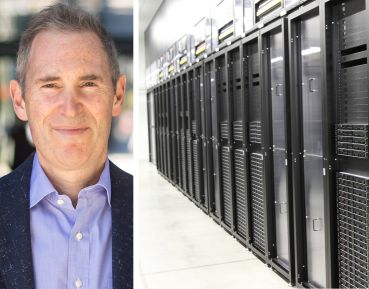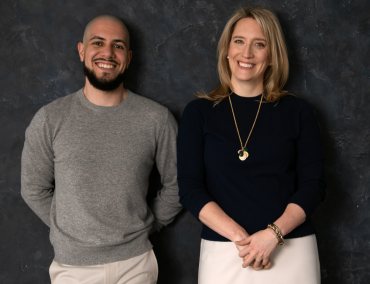Camber Creek’s Casey Berman On Playing the Long Game in Proptech
His VC firm’s $325 million Fund IV recently closed, doubling its previous fund. Here’s where it’s going.
By Philip Russo April 5, 2022 12:00 pm
reprints
In late March, PropTech Insider spoke with Casey Berman, founder and managing partner of Camber Creek about the firm’s mammoth $325 million Fund IV closing and what it means for the company and the proptech industry it invests in so often.
With more than $500 million in assets under management, the Washington, D.C.-based Camber Creek was founded in 2011 and has invested in notable proptech startups such as Notarize, Flex, FlyHomes, Measurabl, Curbio, HappyCo, Building Engines and Latch.
Berman talked about Camber Creek’s proptech startup philosophy, what raising such a large fund means for a VC firm, and what he sees as the next hot areas in the industry.
The interview has been edited for length and clarity.
In February, you closed a $325 million fund, the largest ever for Camber Creek. What does that feel like and how do you plan to deploy the money?
The way we’ve operated with our core funds is we invest in 10 to 15 companies per fund. We work exceptionally closely with the senior management of each of those portfolio companies to help them grow and facilitate their expansion into the market. Once we’ve deployed into that group we then launch our next successive fund. In this case, we deployed into the 10 portfolio companies for Fund III. The plan for Fund IV was to continue to operate the way we’ve been operating for the past 10 years.
The reason for that is twofold. First, we have an amazing percentage of our existing limited partners [LPs] coming back for Fund IV and then we also brought in an additional network of new strategics, as well. The second piece is that our model of working with startups during our due diligence process to add value continues to be a differentiated methodology. We get to know the senior team during due diligence, help them find new customers, and understand what a true partnership with a portfolio company will look like prior to putting any money into the company. Then when we invest, we already have a working relationship, and we can unlock enormous value through our network of investors.
What’s your LP makeup these days?
We have institutional LPs — the public pensions, foundations, endowments, industry service providers such as brokerage houses, and lending groups — and then family offices and high net worth real estate groups. For us, having that full cross section and hundreds of individual LPs in each of those, we’ve aggregated the incredibly disaggregated real estate market.
Has institutional money vastly increased in funds like yours in recent years, or has it been gradual growth?
The way we think about it is this recognition of the opportunity and we see it on both sides of our funds. On the investment side, there’s been a jump in institutional interest in real estate tech. Pre- and post-COVID, there is a very clear delineation. The transition really started to happen in 2018, and then what we saw was a step up since COVID. It has gone hand-in-hand with the demand for real estate tech from the real estate industry and the customers of the real estate industry. The residents of apartments, tenants in office buildings, tenants in retail facilities, the customers at the shopping center — everyone is demanding more of a connected digital experience. COVID massively accelerated that.
An example is Notarize, one of our portfolio companies. After COVID, everyone wanted to close digitally. Notarize is an integral part of that process. So the demand for the customer to have a fully digital experience spiked, and, similarly, the demand to have exposure to real estate tech saw a spike from institutional investors.
Getting back to Camber Creek, working with startups during due diligence rather than only after investing — that sounds like an extended process even for an early-stage VC firm.
That’s a great question. We call it our beta lab, which helps us at every level. First, it really drives a ton of value to the potential portfolio companies early. We say to them, here’s how we are going to add value immediately. There is not a string attached, there is not a qualification that we have to get warrants. It is the building of a very long-term relationship and we start off on a great step.
That we can provide value really quickly is also additive for the [startup]. The way we think about it is that between seven and 14 days we want to get the product in the hands of multiple customers and get feedback immediately. We can move exceptionally fast. We might meet a company very early, in like a pre-seed or seed round, and we can start working with them. When it is time for us to invest, we’re already ready to go. We’ve already added value. We’ve already built the relationship.
The second step, once we make the investment, is that we’ve already built this working relationship with the startup and we know how to communicate with their sales team and [add to their] customer success. Once we’re an investor in the company we can provide them with this massive network efficiently. It’s one thing to have over a million apartment units owned by our LPs, but it’s another to be able to activate that network and get them in front of a company in less than 12 months. That’s not simple. That’s a complicated coordination.
Given all the money you’ve raised, now when you invest in a startup is Camber Creek always looking to be the lead investor?
We have flexibility there. We do lead a majority of our deals. However, it is not a requirement. And as we partner with companies our thinking is that we will make a first investment and it is our intention to invest a lot more money over time, as we continue to add value and the company continues to grow.
Since raising Fund IV, have your proptech startup investment targets changed?
For us, it’s remained consistent. We have this track record of investing and helping grow the market leaders in each of the various asset classes. We’re going to continue to invest and help grow the market winners in each of the asset classes. For us, the biggest difference for Fund IV is that our LP network is more robust now than it’s ever been.
But is there a particular sector of the real estate industry and proptech startups that you’re now more excited about investing in?
We’re really excited about empowering the end customer. What we mean by that is the residents of apartments, the actual people in the office building, a customer at the strip mall, the grocery anchored by the lifestyle center, the actual customer on site. All of these individuals have this tech comfort that has never existed. We’re excited about empowering them to more efficiently interact with their built environment.
That also spans the hotel space. The traditional hotel is one avenue, but right now with Airbnb, VRBO, these single-family assets for short-term stays or apartments for short-term stays, the guest wants a better experience, and technology can help with that. So we’re really excited about that space.
One of the things we actually view changing is artificial intelligence. We view that as exceptionally important for the customer experience, anticipating customer demands, and for real estate overall. For decades, real estate has been a feel business, but we’re seeing two transitions. First, there’s a transition of senior leadership that we’ve never seen before in real estate right now. The second piece is that transition of senior leadership is enabling data to be a major driver with decision-making, the quote-unquote old way of doing real estate is being replaced with data.
How do you make your LPs buy into your due diligence method and long-term investment philosophy?
We have this lens of providing value first. Provide value to the startups and our investors first before you ask for something. Quite often we’ll be working with a real estate firm, and their head of technology or their head of marketing or one of their senior leaders asks us a question like, “which software tool should we use?” [For example,] with multifamily, which software tool should we use to help us market our multifamily assets across channels? We then paint a landscape of the opportunities and the options. We can speak about Yardi, Realpage, Entrata and MRI, but we can also speak about Knock and Funnel, all the companies in the space. We can point to the strengths and weaknesses of our portfolio company Funnel relative to the others in the industry.
And then we let that person make a decision that’s best for their organization. So, by being that great long-term partner, what we have found is that for our LPs, they want more and over time.
We have seen other VCs from Silicon Valley, who are not normally involved in proptech, starting to enter the field. How do you feel about that?
It’s incredibly exciting. The recognition of the generalist VC that there’s an opportunity in proptech is just one more data point of validation about how big it is in real estate, the largest asset class, which people still refer to as “like a group of dinosaurs.” So there’s this amazing opportunity and there’s now recognition across the industry.
The exciting part for us is that the generalist VCs are great partners to work with. Our value add, in addition to capital, is this unparalleled aggregated market of real estate professionals. Quite often what we’ll find is that the generalist VC, similar to the potential company, wants to collaborate with us. They have plenty of capital, but they don’t have an aggregated market. We view the generalists as a complement to what we’re doing.
And, to change the industry you need partners. It takes a community to do that. For that reason, we feel strongly about working with other firms in our process.
Philip Russo can be reached at prusso@commercialobserver.com.


